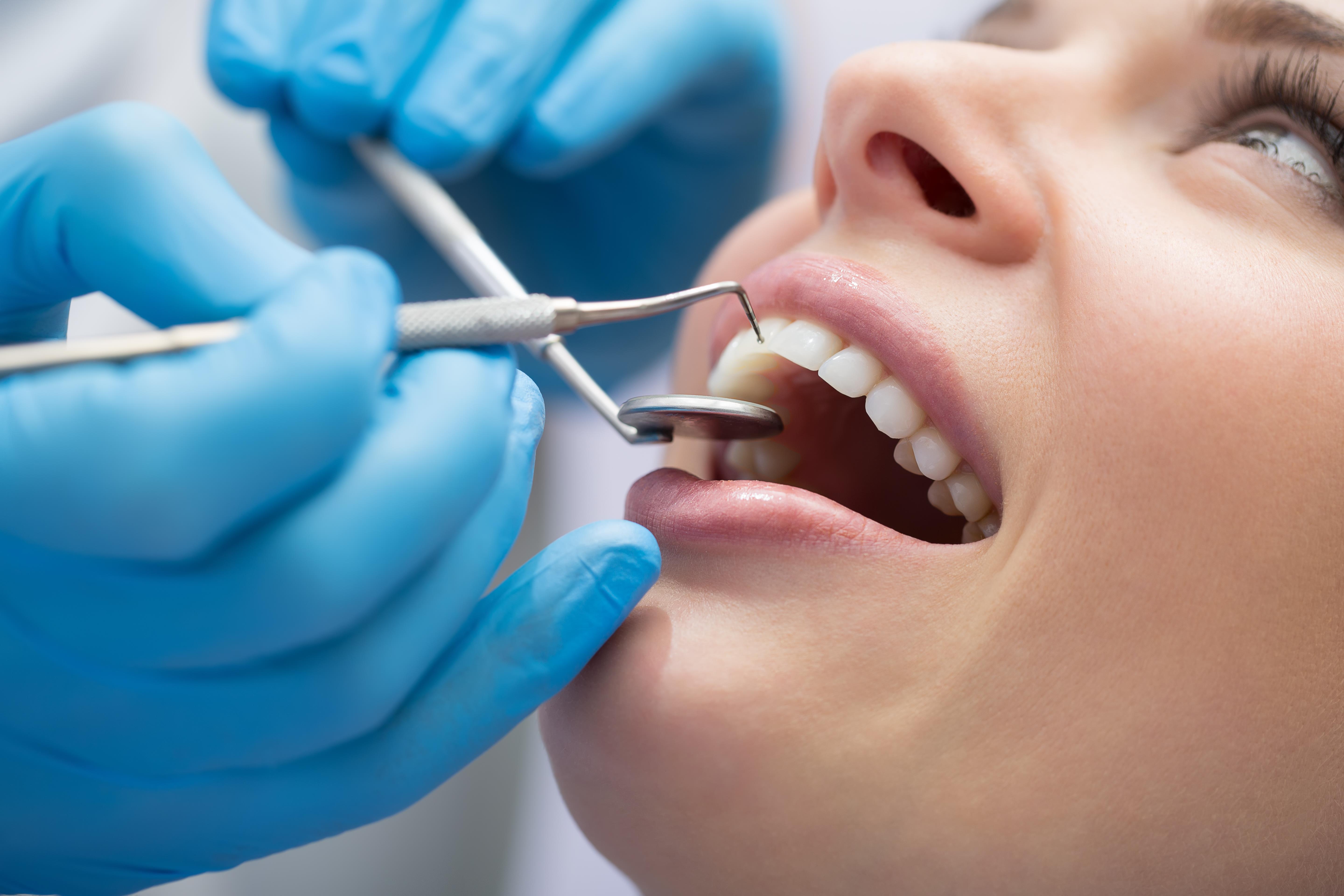Learn the Top Dentist Eugene Oregon Citizens Trust for Exceptional Treatment
Learn the Top Dentist Eugene Oregon Citizens Trust for Exceptional Treatment
Blog Article
An Overview to Usual Dental Problems That Need a Dentist's Care
Toothaches, for example, can be symptomatic of extreme problems such as tooth cavities, fractured teeth, or abscesses, each calling for specific interventions like dental fillings or root canals. Impacted wisdom teeth and jaw conditions can introduce significant pain and difficulties.
Toothaches
Toothaches are a typical dental condition that can vary from mild discomfort to severe discomfort, typically suggesting an underlying problem that calls for specialist interest. This pain can originate from a variety of resources, consisting of oral cavities, split or fractured teeth, and oral abscesses. Each of these problems poses substantial threats if left unattended, potentially bring about extra severe difficulties.
Dental cavities, also known as cavities, are triggered by the accumulation of plaque that deteriorates tooth enamel, leading to holes or pits in the affected teeth. Abscesses are excruciating infections at the origin of a tooth or in between the gum tissue and a tooth, usually resulting from severe degeneration or untreated cavities.
Efficient treatment of toothaches involves addressing the origin. This might include fillings for tooth cavities, crowns for cracked teeth, or root canals and prescription antibiotics for abscesses. Early treatment by a dental professional can avoid further deterioration and minimize discomfort, making sure optimum oral health and wellness.
Gum Condition
Gum tissue condition, a common yet typically neglected oral condition, materializes through swelling and infection of the gum tissues and sustaining cells. This problem primarily happens in two stages: gingivitis and periodontitis. Gingivitis, the milder type, presents with symptoms such as red, puffy gum tissues that might bleed conveniently during brushing or flossing. If left untreated, gingivitis can progress to periodontitis, a much more extreme form defined by the devastation of the supporting bone and connective tissue, ultimately leading to tooth loss.
The key cause of gum disease is bacterial plaque, a sticky, anemic film that constantly bases on teeth. Poor oral health, smoking, genetic proneness, and certain clinical conditions, such as diabetic issues, can exacerbate the risk of establishing periodontal disease. Normal oral examinations are crucial for early discovery and management of this condition.
Therapy for gum tissue illness ranges from expert oral cleansing and scaling to even more innovative procedures like root planing and gum surgical procedure, relying on the extent. Maintaining good dental health techniques, including cleaning twice daily, flossing, and using an antiseptic mouth wash, can substantially reduce the threat of gum tissue disease and promote much healthier gum tissues.
Cavities
Cavities, also referred to as oral decays, are an usual oral condition characterized by the damage of tooth enamel because of acid-producing microorganisms in the mouth. These microorganisms flourish on sugars and starches from food and beverages, producing acids that gradually deteriorate the enamel, bring about cavity formation.
Early-stage cavities might disappoint signs, yet as they advance, they can create tooth pain, level of sensitivity to warm or chilly, noticeable holes or pits in the teeth, and discoloration. If left neglected, tooth cavities can permeate deeper layers of the tooth, possibly causing serious discomfort, infection, and even tooth loss.
Avoiding tooth cavities entails a mix of great dental hygiene techniques and dietary behaviors. Routine cleaning with fluoride tooth paste, flossing, and routine dental exams are important. Dental practitioners may additionally recommend extra safety nets, such as fluoride treatments and oral sealers, to secure teeth from decay.
Therapy for tooth cavities depends upon their severity. Minor dental caries can be addressed with oral fillings, which recover the tooth's framework. Advanced instances may need crowns or also origin canal therapy if the decay has gotten to the tooth's pulp. Timely treatment by a dental expert is vital to avoid complications and preserve overall oral health and wellness.

Impacted Wisdom Teeth
Impacted knowledge teeth are a common oral issue that takes place when the third molars, frequently described as wisdom teeth, fall short to totally emerge or line up appropriately within the mouth. This problem typically results from inadequate room in the jaw or an irregular growth angle of the teeth. Impacted wisdom teeth can cause a selection of difficulties, consisting of damages, infection, and discomfort to nearby teeth.
When knowledge teeth become impacted, they are typically partly erupted or remain entirely underneath the periodontal line. This partial eruption can develop a pathway for microorganisms to get in the gum tissues, leading to infections that show up as swelling, discomfort, and even fever. Furthermore, affected wisdom teeth can apply pressure on neighboring teeth, potentially causing crowding or moving.
A thorough dental assessment, generally including X-rays, is essential for diagnosing affected wisdom teeth. Treatment commonly entails surgical extraction, done by an oral specialist. The procedure aims to alleviate discomfort and protect against more difficulties, such as cysts or damage to surrounding bone frameworks. Post-operative care is vital to ensure proper healing and reduce the risk of infection. Routine dental check-ups are recommended to keep an eye on the condition and maintain oral health.
Jaw Problems
Jaw problems, jointly understood as temporomandibular joint (TMJ) conditions, include a variety of problems that impact the jaw joint and bordering muscular tissues. These disorders can show up with symptoms such as Full Article discomfort or tenderness in the jaw, difficulty eating, a popping or clicking noise when opening up or closing the mouth, and also chronic headaches. TMJ disorders can arise from various aspects, consisting of arthritis, jaw injury, or regular actions like teeth grinding or jaw clenching.
Medical diagnosis of TMJ problems normally includes a thorough analysis by a dental expert, including a physical exam of the jaw, oral X-rays, and occasionally advanced imaging strategies like MRI or CT scans to analyze the joint's condition. Treatment alternatives vary relying on the seriousness of the condition. Non-invasive strategies such click this link as physical treatment, dental splints, and medications targeted at decreasing inflammation and discomfort are usually first-line treatments. In more serious instances, medical treatments might be required to correct architectural concerns within the joint.
Very early intervention by an oral expert is essential to protect against the progression of TMJ problems and to maintain general oral health. Individuals experiencing relentless jaw discomfort or disorder must look for punctual evaluation and treatment.
Verdict
Keeping oral health requires timely professional care to address usual oral conditions. Toothaches commonly indicate underlying problems such as dental caries, split teeth, or abscesses, needing timely treatment. Gum disease, from gingivitis to periodontitis, needs routine oral examinations and cleansings to avoid development. Affected knowledge teeth and jaw disorders likewise need expert interest to alleviate pain and protect against more complications. Regular oral visits are necessary for identifying and dealing with these conditions, ensuring total oral health and well-being.
Dental tooth cavities, also recognized as cavities, are triggered by the build-up of plaque that erodes tooth enamel, leading to openings or pits in the influenced teeth. Abscesses are unpleasant infections at the root of a tooth or between a tooth and the periodontal, commonly resulting from serious degeneration or untreated cavities.

In addition, influenced knowledge teeth can exert stress on surrounding teeth, potentially creating reference crowding or moving.
Report this page